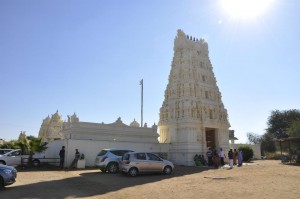
After 75 years of British colonial rule, Botswana gained its independence in 1966, abandoning its previous protectorate name, Bechuanaland. Unlike many other African countries, Botswana has enjoyed almost uninterrupted peace since that time and has consistently held free and fair elections. Botswana is also one of the least corrupt countries in the world. In the 2013 corruption perceptions index, Transparency International rated Botswana the least corrupt country in Africa and the 30th least corrupt country of the world’s 175 countries. Botswana, however, is ranked by the CIA as having the third highest rate of AIDS in the world.
Botswana’s legal system is a unique combination of English common law and Roman-Dutch law that was created when the British took over what had previously been Dutch-ruled Southern Africa. According to Professor Charles Fombad, though Roman-Dutch law was the foundation for the common law system, over time English common law was “superimposed” over it.
In terms of population, Botswana is one of the smaller countries in the world, with roughly two million people. These two million people are comprised of the following ethnic groups: 79 percent is Tswana (or Setswana), 11 percent is Kalanga, 3 percent is Basarawa, and the remaining 7 percent is comprised of various groups, including Kgalagadi and Caucasian. Religiously, Botswana is diverse, but is predominantly Christian. In 2012, the U.S. government estimated that roughly 70 percent of the population were members of a Christian sect, 6 percent were followers of an indigenous religion known as Badimo, 20 percent identified with no religion, and 1 percent were part of various other religious organizations. The major Christian denominations in the country are the Anglican Church, Methodists, and the United Congregational Church of Southern Africa. Smaller Christian sects with a presence in Botswana include the Catholic Church, Lutheran Church, Jehovah’s Witnesses, The Church of Jesus Christ of Latter-day Saints, Seventh-day Adventists, and Baptists. Botswana also has approximately 8,000 Muslims living within its borders and pockets of Hindus and Bahais.
There is no official state religion in Botswana despite its strong religious heritage. It is not uncommon, however, for government meetings and councils to begin with prayers. Typically these prayers are Christian in nature, but those of non-Christian sects are not excluded from leading prayers at meetings. A religious curriculum is also taught in public schools; it emphasizes Christianity but also contains information on other religious groups in the country. Students are not required to participate in the study if it is against their religious beliefs.
[From Republic of Botswana: Law and Religion Framework Overview. See more at the link below.]